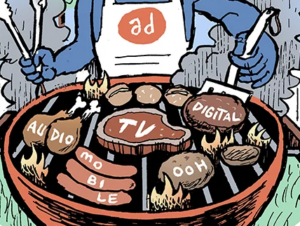The bid has dropped. Comcast on Wednesday again attempted to outmaneuver Mickey and acquire most of 21st Century Fox’s assets with a $65 billion cash offer, putting Disney’s deal in jeopardy.
Disney offered Fox a $52.4 billion all-stock deal in December. Comcast wants to disrupt the deal and follow in AT&T’s footsteps: a content distributor getting its hooks into a content creator.
Although Tuesday’s approval of AT&T’s $85 billion acquisition with Time Warner was expected, the ruling gave Comcast the confidence to move ahead with its all-cash party crash. Although vertical mergers don’t usually run into opposition, Comcast was still waiting for Judge Richard Leon’s green light before making its move.
Like AT&T, Comcast wants to protect and grow its business. That means having an offering that can approach the outsized scale of Facebook, Google, Amazon and other tech giants.
Both AT&T and Comcast are grappling with the reality of shrinking cable and satellite subscribers, said SteelHouse CEO Mark Douglas.
“Thirty million households have either cancelled their subscriptions or gone to skinny bundles in the past 30 months,” Douglas said. “That’s the equivalent of the southeast of America not watching television. They still are, it’s just not through AT&T and Comcast.”
In other words, Silicon Valley isn’t just aiming to eat their lunch, it’s already ordering dessert. That’s why Comcast wants more than just content, which is the main motivator behind AT&T’s Time Warner buy and Disney’s lust for Fox.
“The TV and advertising businesses at AT&T and Comcast face a tremendous threat from Silicon Valley digital titans,” said Eric Schmitt, a research director and analyst at Gartner. “The Silicon Valley players dream of a future in which they dominate TV, advertising and many, many other aspects of the consumer experience, with AT&T, Comcast and Verizon relegated to ‘dumb pipe’ internet connectivity providers.”
Comcast’s bid for Fox is also a bid for global reach through Fox’s international TV presence, which includes Sky in the UK and Star TV in India. Digital players such as Netflix and YouTube also have global reach, making it harder to compete.
“The global, streamlined models that [players like Netflix and Google] employ to create and license programming, distribute it to consumers and wrap it with advertising put even more pressure on the traditional TV industry,” Schmitt said. “Comcast’s bid for Sky underscores just how important global expansion is.”
Also important: the advertising opportunities. Advertisers will win in a Comcast-Fox marriage. Comcast already acquired several ad tech companies and it has plentiful ad inventory, Douglas said.
“Integrating some of the ad tech companies Comcast already owns, like FreeWheel, with Fox inventory, could lead Fox ad inventory to become much more targetable and, at the same time, more valuable,” he said.
So, what’s next?
Most likely a high-stakes bidding war between Comcast and Mickey Mouse. But we can also expect more seismic shifts in mega-merger land.
“Verizon now will go into massive hunting mode and a CBS tie-up is a real possibility,” said Eric Schiffer, CEO of the Patriarch Organization, an LA-based private equity firm. “The probabilities of a Sprint/T-Mobile deal [also] become powerfully more realistic.”















